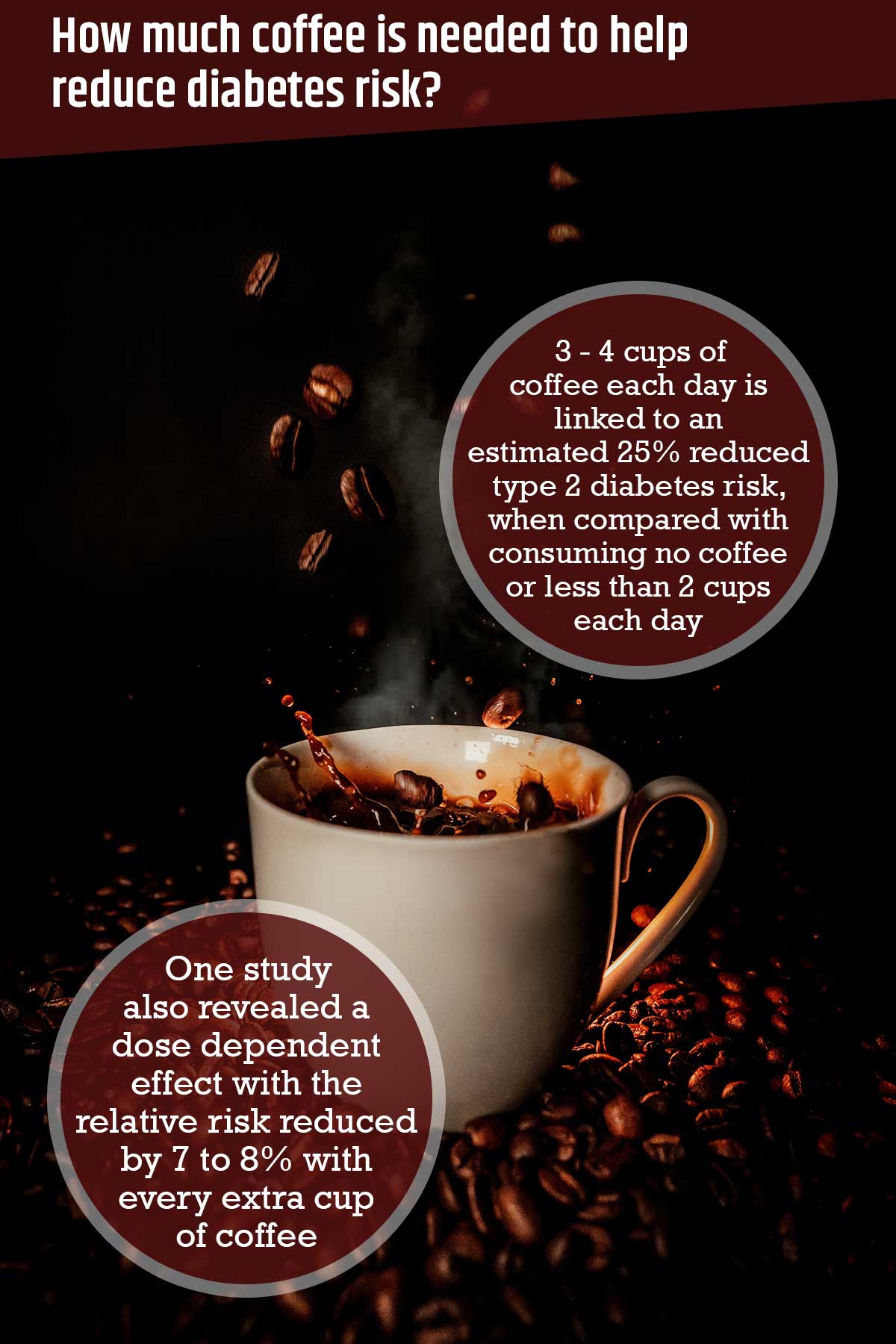Consuming 3 to 4 cups of coffee each day could help in the prevention of type 2 diabetes. Regular and moderate coffee consumption has consistently been associated with a possible lower type 2 diabetes risk.
3 – 4 cups of coffee each day is linked to an estimated 25% reduced type 2 diabetes risk, when compared with consuming no coffee or less than 2 cups each day.1✅ JOURNAL REFERENCE
DOI: 10.1016/S0140-6736(02)11436-X
One study also revealed a dose dependent effect with the relative risk reduced by 7 to 8% with every extra cup of coffee.2✅ JOURNAL REFERENCE
DOI: 10.1001/archinternmed.2009.439
Glucose and insulin was tested in one randomized controlled study following an oral glucose tolerance test (OGTT) with 12g of decaffeinated coffee, 500 mg trigonelline, 1g chlorogenic acid, or placebo.
Reduced glucose and insulin responses were found with trigonelline and chlorogenic acid and they contributed to the coffee’s putative beneficial effects.3✅ JOURNAL REFERENCE
DOI: 10.1186/1743-7075-8-10
The coffee consumption and a reduced type 2 diabetes risk link can be viewed as counter intuitive, as coffee consumption is sometimes associated with unhealthier habits, like lower physical activity levels and smoking.
Research has also shown that moderate consumption of coffee isn’t associated with a higher risk of stroke, coronary heart disease or hypertension.
Research with individuals having cardiovascular disease has also confirmed that moderate consumption of coffee is inversely linked to heart failure risk, with a J-shaped relationship.4✅ JOURNAL REFERENCE
DOI: 10.1007/s00125-009-1311-1
One of the key theories which underlie the possible consumption of coffee and reduced diabetes risk relationship is the ‘Carbohydrate Metabolic Hypothesis’, by which it’s believed that the components in coffee influence the body’s glucose balance, and the ‘Energy Expenditure Hypothesis’, suggesting that the coffee’s caffeine increases energy expenditure and stimulates metabolism.
There’s also a subset of theories which suggest coffee has components which could improve insulin sensitivity by means of mechanisms like the mediation of cell’s oxidative stress, hormonal effects, the modulation of inflammatory pathways or the reduction of iron stores.



